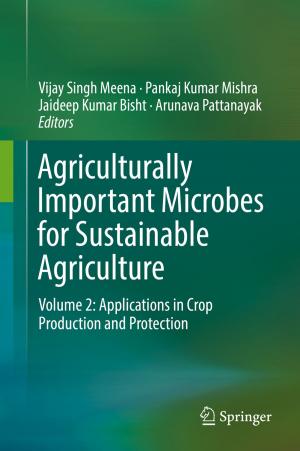Biotechnological Approaches for Medicinal and Aromatic Plants
Conservation, Genetic Improvement and Utilization
Nonfiction, Science & Nature, Science, Biological Sciences, Biochemistry, Botany| Author: | ISBN: | 9789811305351 | |
| Publisher: | Springer Singapore | Publication: | September 11, 2018 |
| Imprint: | Springer | Language: | English |
| Author: | |
| ISBN: | 9789811305351 |
| Publisher: | Springer Singapore |
| Publication: | September 11, 2018 |
| Imprint: | Springer |
| Language: | English |
For the majority of the world’s population, medicinal and aromatic plants are the most important source of life-saving drugs. Biotechnological tools represent important resources for selecting, multiplying and conserving the critical genotypes of medicinal plants.
In this regard, in-vitro regeneration holds tremendous potential for the production of high-quality plant-based medicines, while cryopreservation – a long-term conservation method using liquid nitrogen – provides an opportunity to conserve endangered medicinal and aromatic plants. In-vitro production of secondary metabolites in plant cell suspension cultures has been reported for various medicinal plants, and bioreactors represent a key step toward the commercial production of secondary metabolites by means of plant biotechnology.
Addressing these key aspects, the book contains 29 chapters, divided into three sections.
Section 1: In-vitro production of secondary metabolites
Section 2: In-vitro propagation, genetic transformation and germplasm conservation
Section 3: Conventional and molecular approaches
For the majority of the world’s population, medicinal and aromatic plants are the most important source of life-saving drugs. Biotechnological tools represent important resources for selecting, multiplying and conserving the critical genotypes of medicinal plants.
In this regard, in-vitro regeneration holds tremendous potential for the production of high-quality plant-based medicines, while cryopreservation – a long-term conservation method using liquid nitrogen – provides an opportunity to conserve endangered medicinal and aromatic plants. In-vitro production of secondary metabolites in plant cell suspension cultures has been reported for various medicinal plants, and bioreactors represent a key step toward the commercial production of secondary metabolites by means of plant biotechnology.
Addressing these key aspects, the book contains 29 chapters, divided into three sections.
Section 1: In-vitro production of secondary metabolites
Section 2: In-vitro propagation, genetic transformation and germplasm conservation
Section 3: Conventional and molecular approaches















